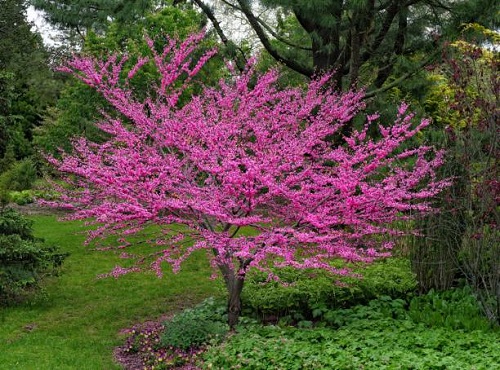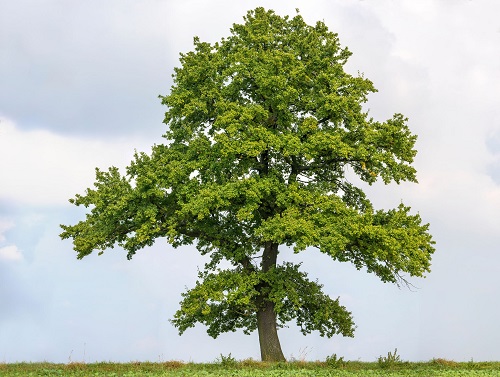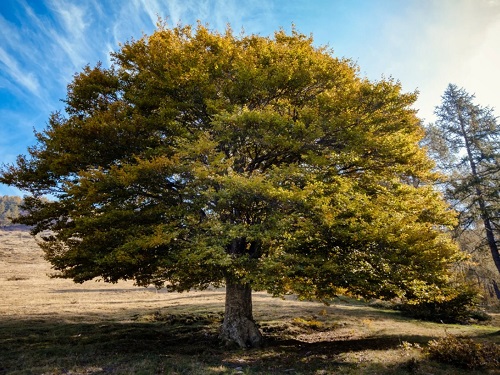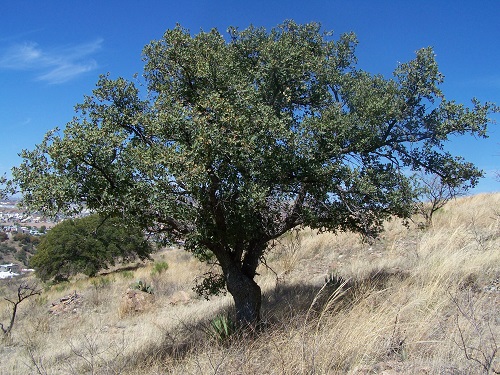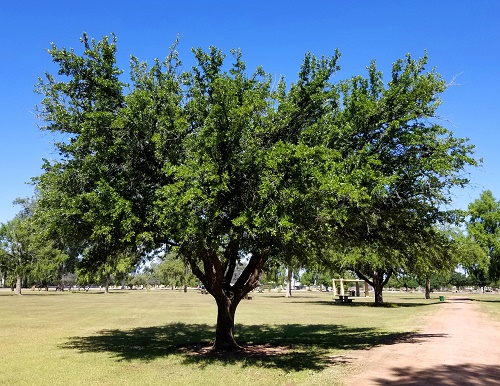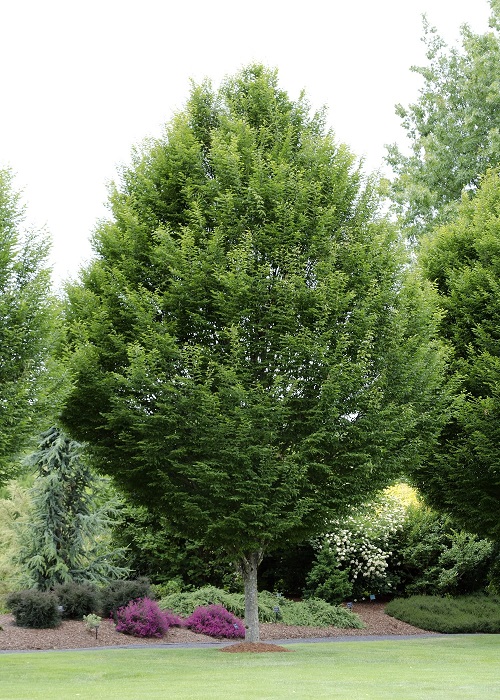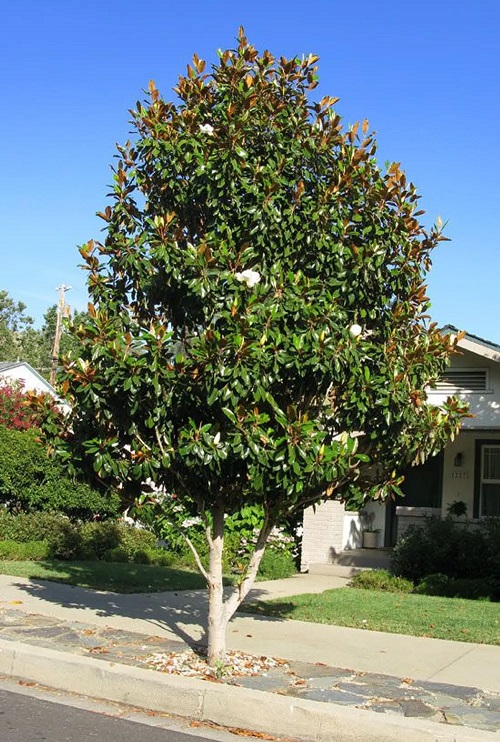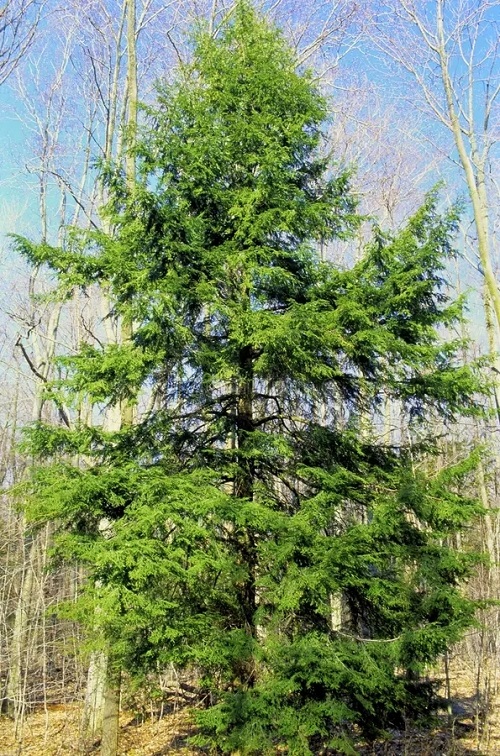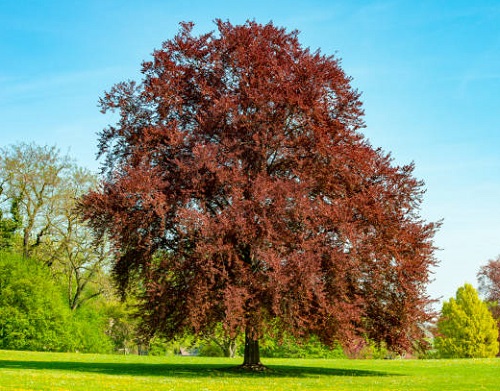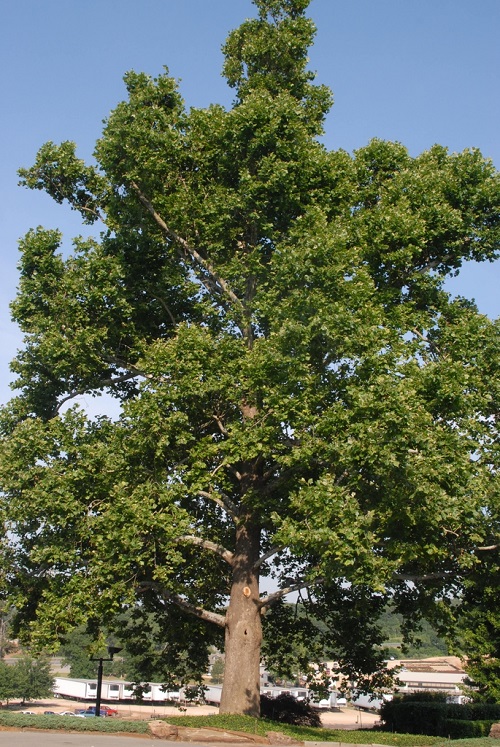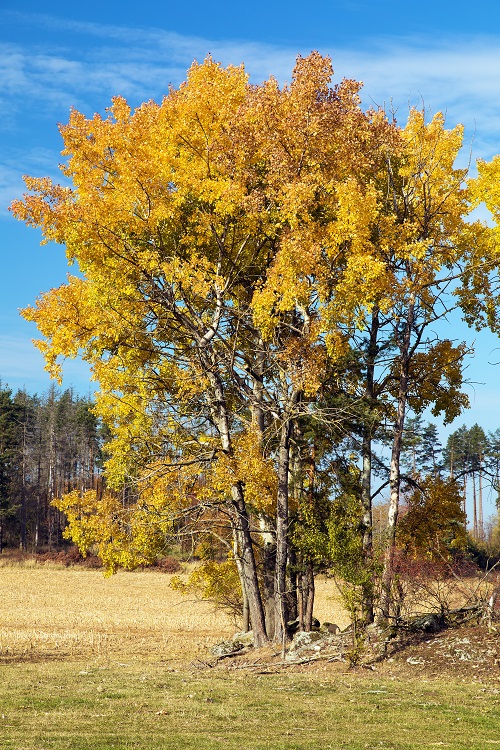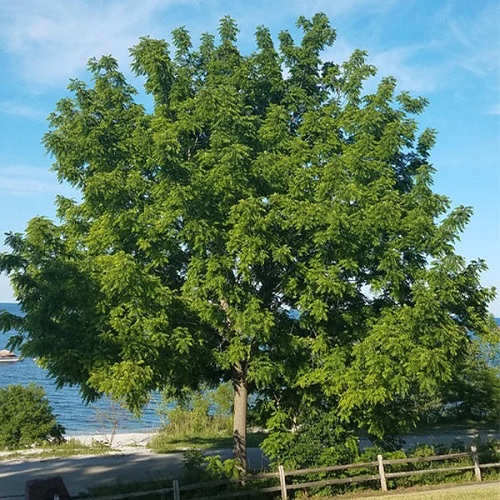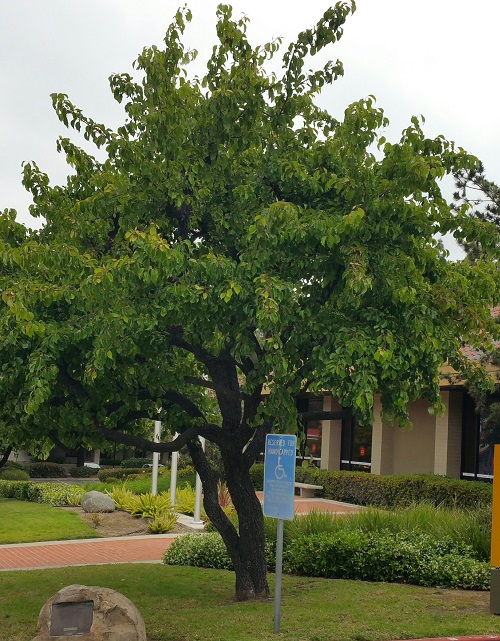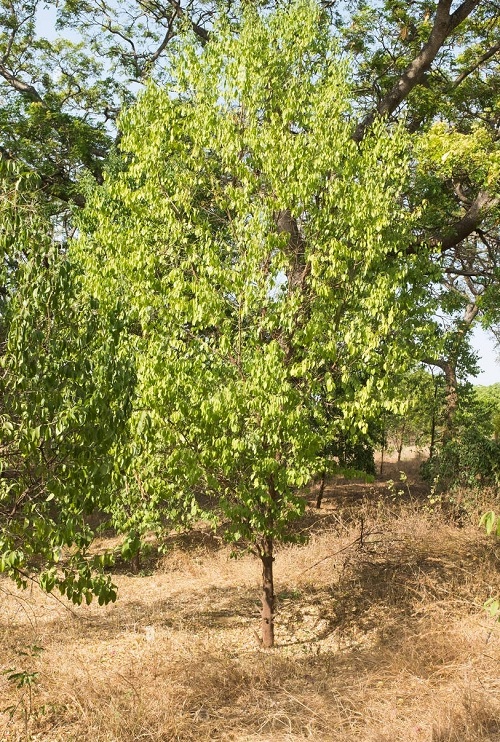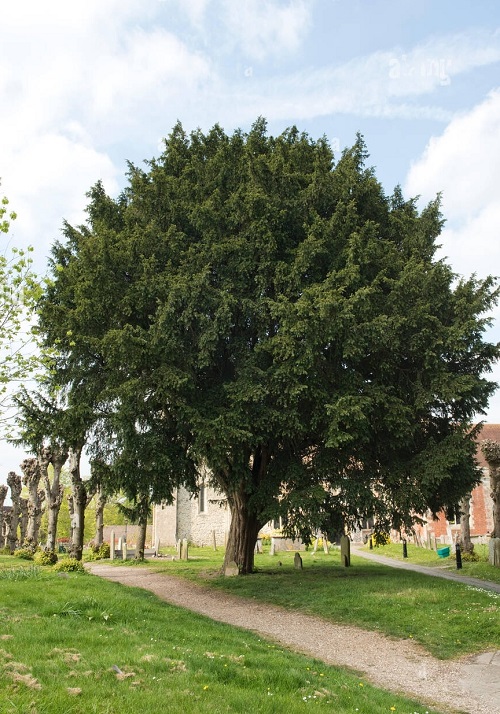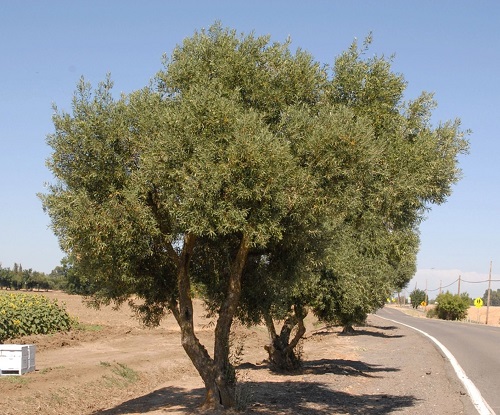From eastern redbud to empress tree, explore the diverse range of Trees That Start with E and elevate your garden’s aesthetics!
If you want to diversify your landscape, why not explore Trees That Start with the Letter E? These fascinating species offer many benefits, from aesthetic appeal to practical uses. Read on to find out some of the best varieties.
Trees That Start With E
1. Eastern Redbud
Botanical Name: Cercis canadensis
The Eastern Redbud is a deciduous tree native to eastern North America. Known for its vibrant, pink-to-purplish flowers, it is an ornamental focal point in many landscapes. The tree reaches 20 to 30 feet and is adaptable to various soil types.
2. English Oak
Botanical Name: Quercus robur
The English oak is a native European tree species renowned for its hardy nature and long lifespan. This deciduous tree features distinctive lobed leaves and acorns, making it a crucial resource for wildlife.
3. Elm Tree
Botanical Name: Ulmus spp.
The elm tree is characterized by its arching branches and serrated leaves. Its canopy provides cool shade during summer, thus a favored choice for creating peaceful outdoor settings.
4. Emory Oak
Botanical Name: Quercus emoryi
Native to the arid landscapes of the American Southwest, the Emory oak can thrive in harsh conditions. Its deep green foliage and small acorns are a vital food source for local wildlife.
5. Escarpment Live Oak
Botanical Name: Quercus fusiformis
The escarpment live oak is a moderate drought-tolerant evergreen tree. Its elliptic to oblong leaves with dentate margins make it easily distinguishable from other oak varieties.
6. European Hornbeam
Botanical Name: Carpinus betulus
European hornbeam features smooth blue-gray bark and finely serrated leaves. This tree is commonly used for hedging and screening. It’s a notable addition among the types of trees that start with E.
7. Evergreen Magnolia
Botanical Name: Magnolia grandiflora
The evergreen magnolia offers large, glossy leaves and aromatic white flowers. This resilient tree adapts well to various soil types and conditions. Its year-round foliage and ornamental appeal make it a popular choice for gardens.
8. Eastern Hemlock
Botanical Name: Tsuga canadensis
The eastern hemlock is a coniferous tree with fine, feathery needles and small cones. It thrives in cool, moist environments and is common near streams or rivers. In landscaping, it’s frequently used for hedges, screens, or as a solitary specimen.
9. European Beech
Botanical Name: Fagus sylvatica
Fagus sylvatica, or European beech, boasts smooth, gray bark and elliptical, wavy-edged leaves. The tree’s hard, fine-grained wood is used for furniture, flooring, and cabinetry.
10. Eastern White Pine
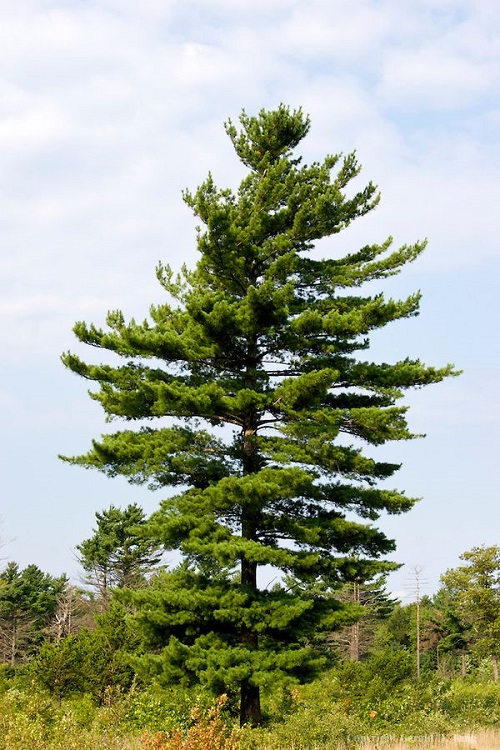
Botanical Name: Pinus strobus
The eastern white pine is a coniferous tree featuring long, slender, bluish-green needles. It can reach up to a height of 50 to 80 feet. Its wood is soft, lightweight, and easy to work with, commonly used in construction and cabinetry.
11. Elephant Apple Tree
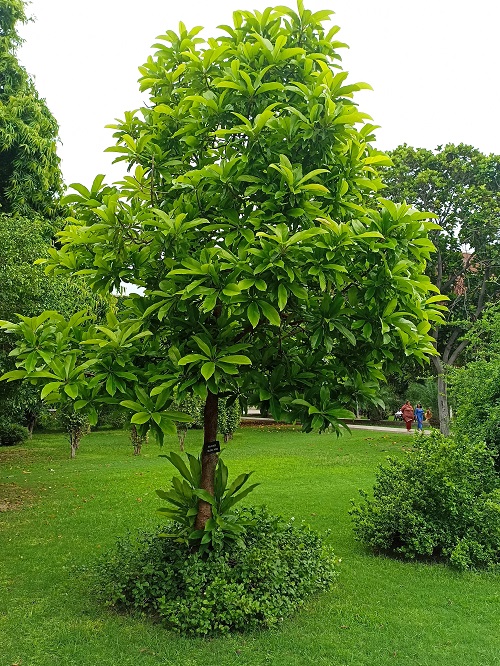
Botanical Name: Dillenia indica
The elephant apple tree is native to Southeast Asia, boasting leathery leaves. Its white daisy-like flowers and large fleshy fruits add visual interest to gardens.
12. European Larch
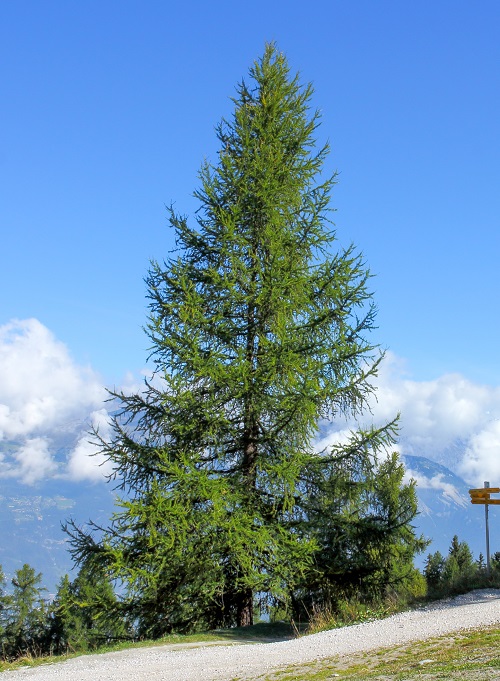
Botanical Name: Larix decidua
European larch or Larix decidua is a unique conifer that sheds its needles in the fall after turning yellow. Its resinous, durable, and rot-resistant timber makes it ideal for outdoor decking and fencing. This tree is a popular choice for ornamental landscaping.
13. English Walnut
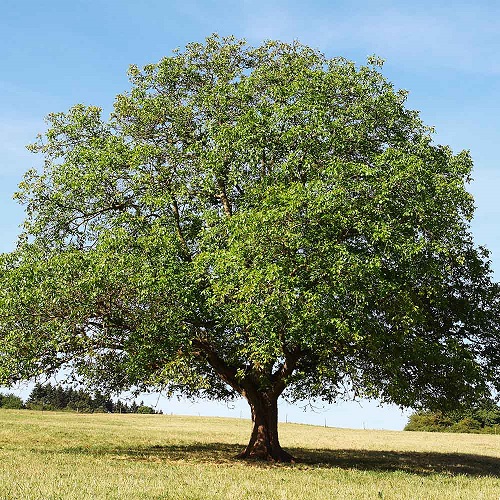
Botanical Name: Juglans regia
Highly prized for its edible nuts, the English walnut can grow 40 to 60 feet tall. It produces pinnate leaves and green, rounded fruits that house hard-shelled walnuts. Its wood is also popular for its fine grain, thus often used in furniture making and woodcraft.
14. Eastern Cottonwood
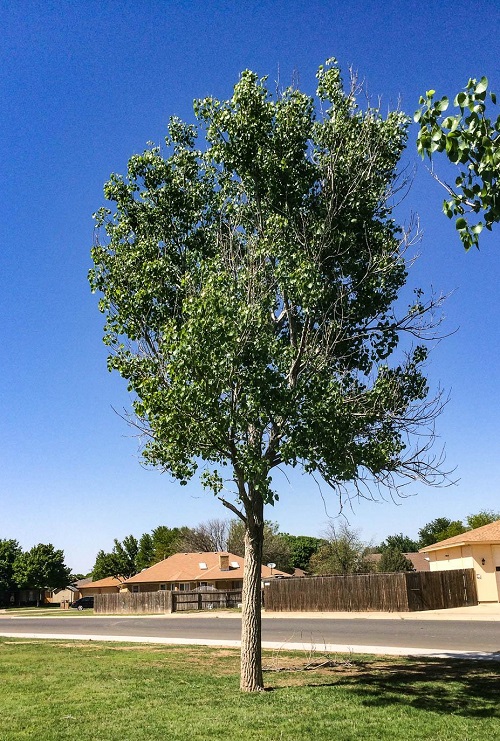
Botanical Name: Populus deltoides
Cottonwood’s heart-shaped leaves look beautiful in the breeze. As a rapid-growing tree commonly found near water sources, it is important for supporting local ecosystems.
15. Eastern Sycamore
Botanical Name: Platanus occidentalis
The Eastern sycamore is famous for its distinct, flaky bark that reveals an underlying light-colored layer. It thrives in moist environments and provides ample shade with its large, lobed leaves.
16. European Aspen
Botanical Name: Populus tremula
With leaves that tremble at the slightest breeze, the European Aspen presents an ever-changing spectacle. Combined with its striking white bark, this feature adds a beautiful element to landscapes.
17. Eastern Black Walnut
Botanical Name: Juglans nigra
The Eastern Black Walnut’s dark bark and compound leaves make it look unique. Beyond its aesthetics, the tree’s nutritious nuts and potential for various culinary uses highlight its practical value.
18. Evergreen Pear
Botanical Name: Pyrus kawakamii
With its glossy, dark green leaves and dainty white flowers, the Evergreen Pear evokes a sense of freshness. This tree’s year-round attractiveness makes it a favored choice for landscapes.
19. East Indian Sandalwood
Botanical Name: Santalum album
The East Indian Sandalwood holds a place of cultural and aromatic importance. It emits a cherished fragrance, thus an excellent addition among living trees that start with E.
20. Eastern Hop-hornbeam
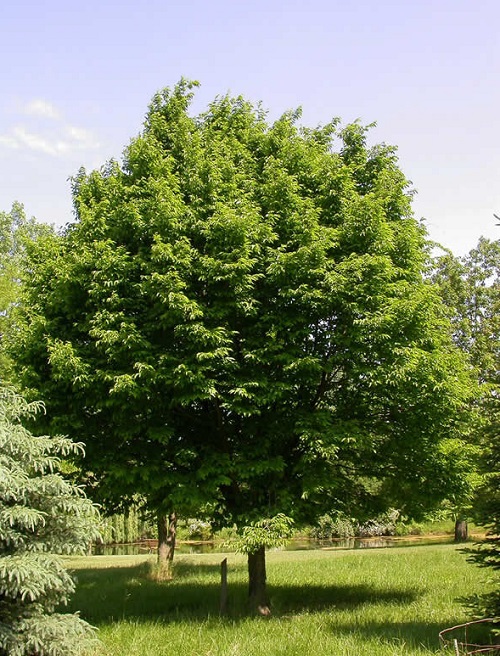
Botanical Name: Ostrya virginiana
The Eastern Hop-hornbeam’s hop-like fruits and finely-toothed leaves add character to woodland settings. It’s often found in rocky or dry landscapes and sloped areas.
21. English Yew
Botanical Name: Taxus baccata
The English Yew’s dark green needles and vibrant red berries create a striking contrast that catches the eye. Endemic to Europe, western Asia, and North Africa, this tree is a versatile evergreen often used in hedging and topiary.
22. Eastern Black Oak
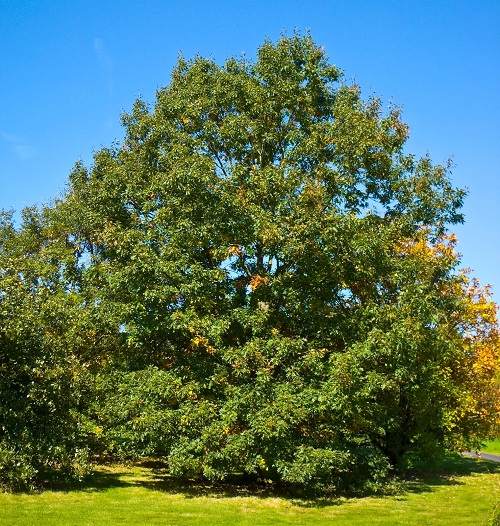
Botanical Name: Quercus velutina
The Eastern black oak is distinguished by its dark, ridged bark and lobed, green leaves that turn a deep red in the fall. Its visually appealing and ecologically valuable presence adds great value to natural ecosystems.
23. European Olive
Botanical Name: Olea europaea
Though mainly recognized for its fruit, the European Olive tree features grayish-green leaves and gnarled trunks. This slow-growing broadleaf tree can become 20 to 30 feet tall.
24. Eastern White Cedar
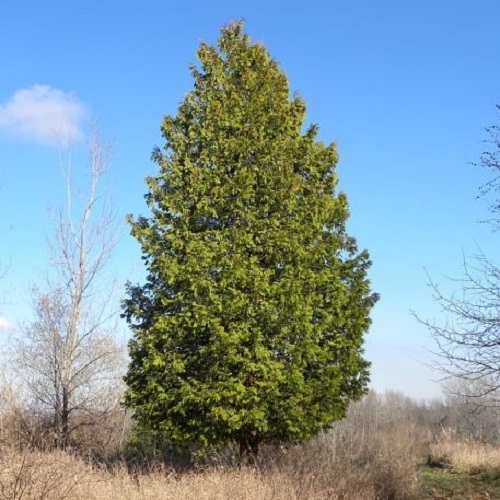
Botanical Name: Thuja occidentalis
A popular choice for hedges and screens, Eastern white cedar has soft, scale-like leaves and a pyramidal shape. It’s a low-maintenance tree that grows well in full sun or partial shade.
25. Empress Tree
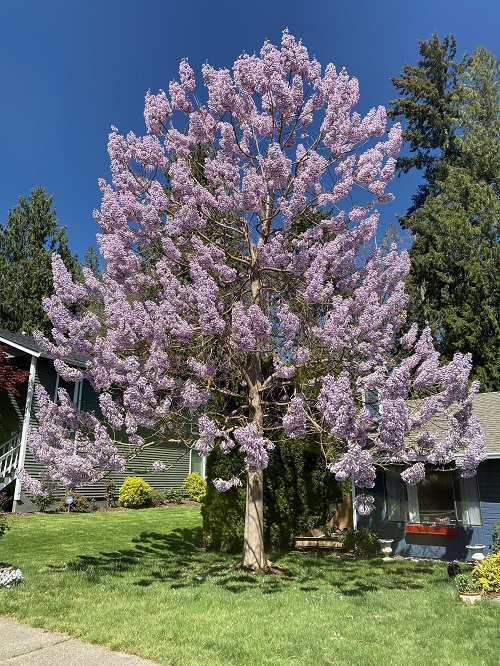
Botanical Name: Paulownia tomentosa
Popular among gardeners for large, showy flowers, the Empress Tree is often planted for ornamental and timber purposes. This botanical wonder makes the kinds of trees that start with ‘E’ because of its eye-grabbing appearance.

